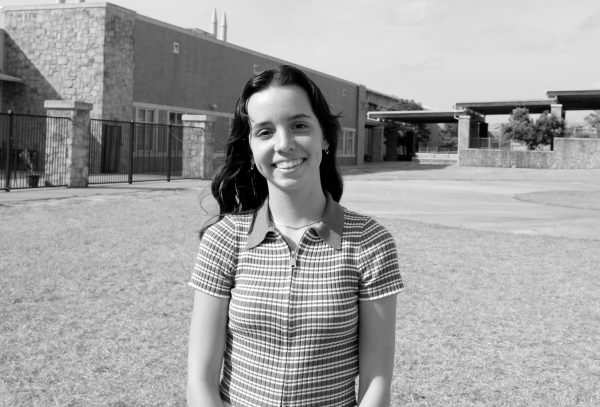A new kind of freshie: High demand for educators brings an influx of young teachers
English teacher Tyler Lewis, IB psychology and world history teacher Teagan Kafer, and English teacher Macy Mckown start their first year out of college teaching.
September 5, 2022
Just months ago they were sitting at desks, but now the tables have turned as they take over the classroom. From stepping in the principal’s office for an interview to making the upcoming year’s schedule, fresh staff begin their first year on campus.
Due to the sudden demand in high school educators, an abundant amount have started their first year on campus. On account of the urgent need for new teachers to replace the great number lost, a good portion have recently graduated college.
“I absolutely love it,” English teacher Macy Mckown said. “The kids are great, the staff is great. I really couldn’t ask for a better first year so far.”
An influx of new teachers begin their first year, all having expectations and hopes for how their time teaching in class will play out. As English teacher Tyler Lewis begins, he faces challenges surrounding the curriculum, particularly coming up with specific class assignments for students.
“I think the biggest one for me is that I have to create the things to teach,” Lewis said. “There are a lot of other teachers here who are really great. We get to collaborate and figure out what we’re going to teach, but the easiest part is actually teaching and standing up in front of the class.”
Because of such a high need for educators, college students aiming to go into the teaching field may not be required to jump through as many hoops as they used to, making the hiring process quicker.
“I just started applying to everywhere,” psychology and world history teacher Teagan Kafer said. “The principal got back to me a week later and everything randomly fell into place.”
In contrast to previous employment standards, the high demand for staff has resulted in a decrease in the amount of fees required to fund the education programs and testing.
“It’s a hard job to become a teacher, so it’s definitely becoming easier,” Kafer said. “But, that’s kind of a double edged sword.”
While the curriculum in college for teaching has been modified, it still proves to be a difficult course to go through due to the specific programming and exams required.
“For me, I was taking a full load of upper division English classes while I was working on my teacher certification,” Lewis said. “At least for UT Austin, in my experience, they become more rigorous and there’s a lot of requirements that you have to meet to become a teacher.”
Despite the difficulties they’ve faced, they were able to overcome this quick transition into a new environment and gained knowledge in which they would give to aspiring educators in college.
“There were a lot of points in my college career where I was told I couldn’t do something or I felt like, ‘What’s the point?’ I really wanted to give up,” Kafer said. “Honestly, being here the last three weeks, I’ve been so grateful that I didn’t.”
After all of the hard work and preparation, teachers are finally settled into the school and ready for the school year. In the classroom they focus on being role models to all of the students who enter the class while still implementing expectations.
“Honestly, when I was student teaching, it was just a completely different culture,” Mckown said. “The culture here is just perfect. I couldn’t ask for it better this week.”








Dayna Ung • Sep 8, 2022 at 4:02 pm
This is such a cool story Rylie! Great job!